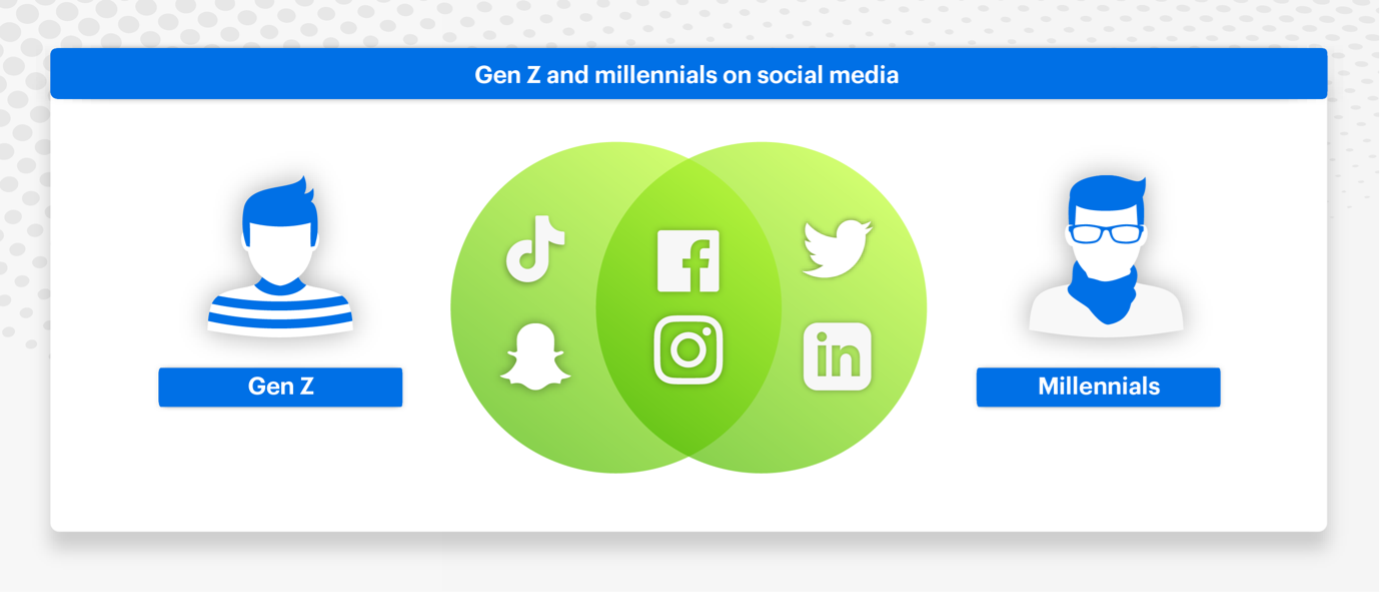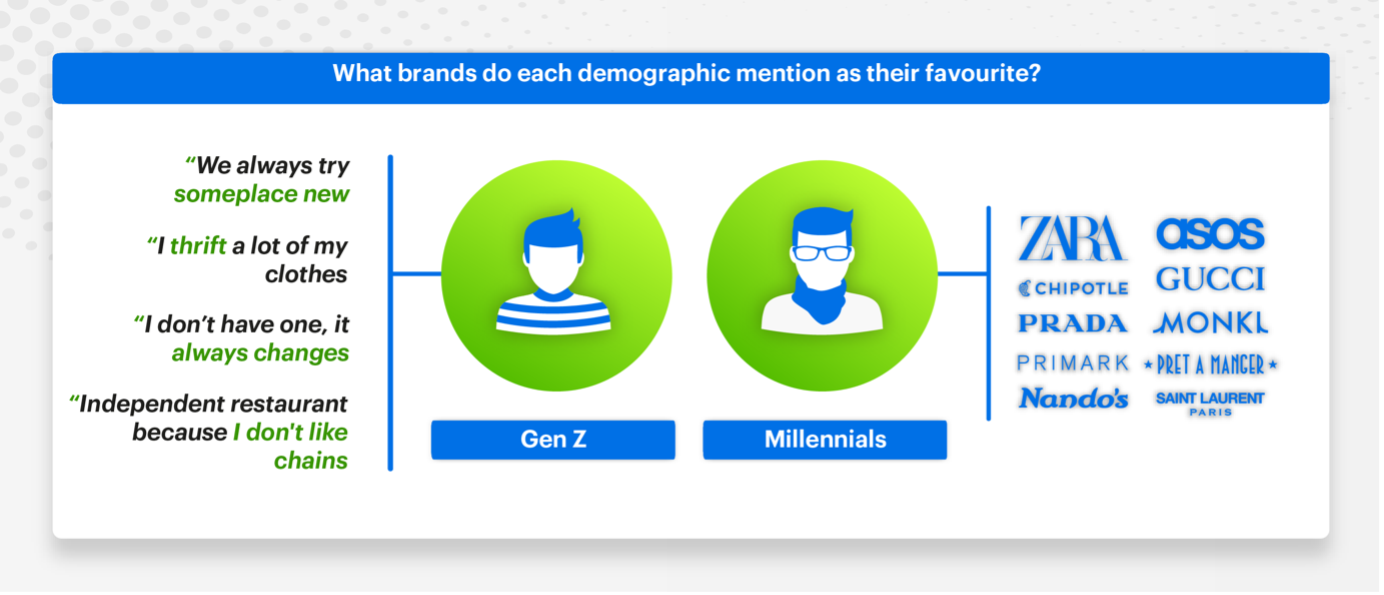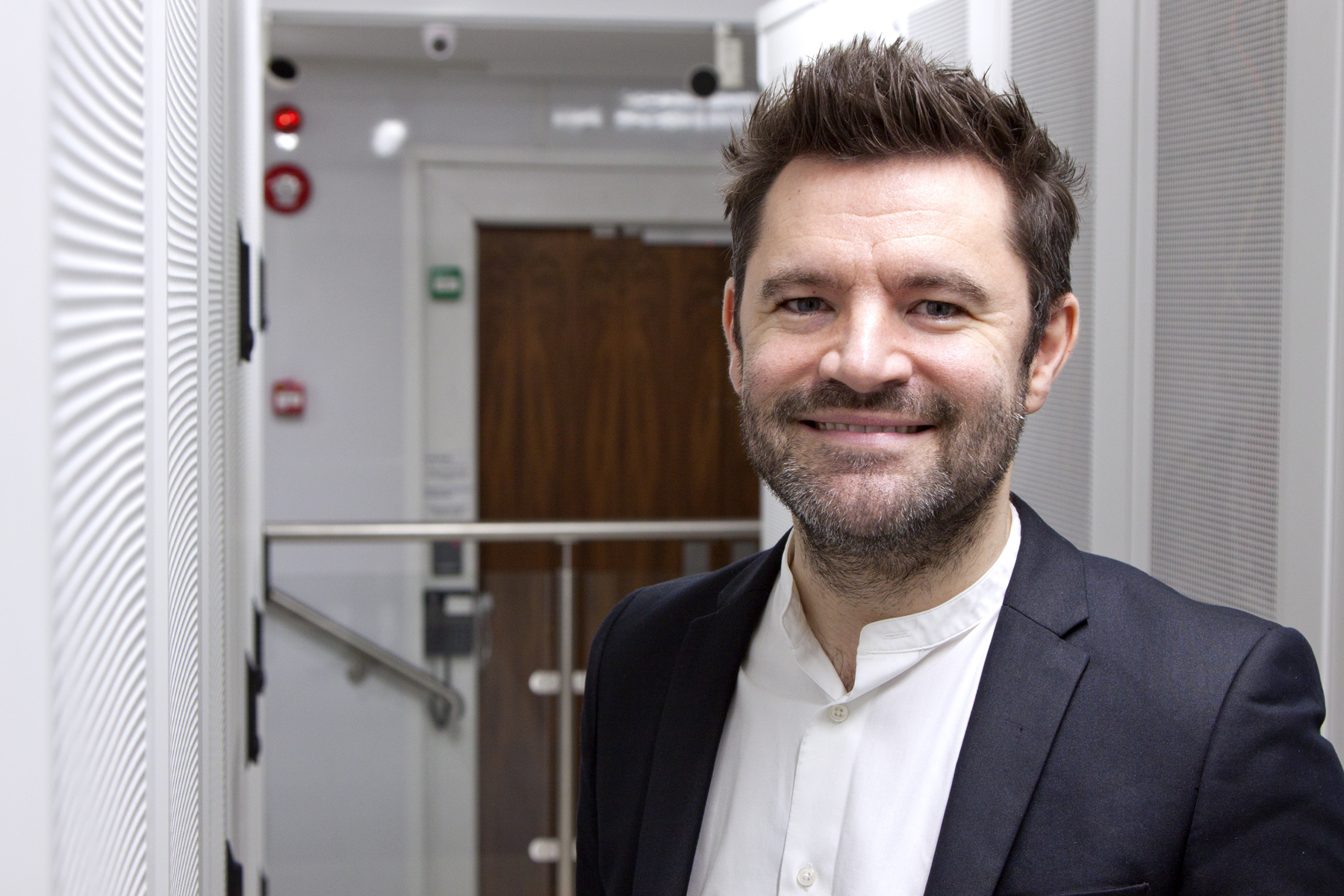
The imminent rise of gen Z is causing a significant transformation in how brands market their products to the next cohort of consumers.
Members of this demographic are thoughtful, politically woke, and fiercely passionate. But as their thoughts, values and opinions differ from generations before them, brands and marketers must adapt their strategies in order to keep up.
So, how do you speak to gen Z?
To truly understand gen Z’s divergence from millennials, Relative Insight conducted a global survey of 300 respondents from the UK, United States, Germany and Hong Kong to name a few.
The survey consisted of a variety of open-ended questions that helped us dive deep into the mindsets of millennials and generation Z. The results revealed how these two distinct demographics think about sustainability, spending, consumerism, brand loyalty and social media.
The survey responses were uploaded directly into Relative Insight’s platform, where the results were split by age to create the comparison.
Using comparison as an analysis method
Relative Insight is a text analysis platform, which uses comparative methodology to derive powerful insights from qualitative data. While historically, open-ends prove challenging to analyse, Relative Insight transforms lengthy survey responses into a goldmine of insights.
The comparative analysis helped to uncover differences in opinions between millennials and gen Zs, yielding detailed insights into how each audience views the world around them.
Key insights on gen Z
Social media:
Our analysis found that gen Z view social media as a place that connects them. They use the likes of Snapchat and TikTok to remain updated on the lives of friends and as a platform to access global news. In contrast, social media is simply a form of entertainment for millennials; an escape from reality where they seek engaging content from brands.
Surprisingly, we discovered that Facebook isn’t going away anytime soon! Both demographics were equally as likely to mention Instagram and Facebook, despite using social for different purposes.
These unique insights help us to understand why different generations are attracted to social media channels, where brands should advertise to target specific demographics and what content will resonate. 
Spending:
We asked respondents: If you had £/$1000 to spend on any one item, what would it be?
Millennials were quick to splurge their money on pricey bottles of champagne, designer goods and getaway trips.
However, gen Z provided thoughtful responses: “I would save it”, “Invest” or “I’m not sure”. This young generation of consumers aren’t ready to jump into a large, albeit hypothetical financial decisions, giving us a glimpse into their future spending behaviours.
Brands:
As part of our study, we wanted to decipher how brand affiliation differs across generations. We found that while millennials prefer designer labels, gen Z favours niche brands.
The younger generation describe a general “vibe” when speaking about brands - effortless, cool, chic – and are 6.9x more likely to talk about their ethical practices. Furthermore, when it comes to restaurants, gen Z are 227x more likely to talk about atmosphere and ambience, rather than the restaurant itself.

So, what does this mean?
Gen Z clearly care more about ethical causes than a brand name, clothing that fits their own personal aesthetic, and a good time with friends over a fancy chef or reliable food chain. Brands can no longer just sell products; they must provide an experience. And a personal and authentic experience at that.
Sustainability:
85% of survey respondents agreed that brands should be held accountable over social responsibility, sustainability issues and climate change. However, gen Z provided the most in-depth responses, claiming that they wouldn’t buy brands who:
1. Lack transparency in the supply chain
2. Use materials that are not eco-friendly
3. Use packaging isn’t recyclable
This generation make it their mission to understand the intricacies of both sustainability and societal issues, which ultimately influences their purchasing decisions. Their advice to brands?
• Be transparent
• Actively explain what you’re doing
• Be aware of how you’re perceived
Note: the idea that gen Z have an opinion of how brands should behave is an anomaly in itself.
The bottom line :
There is no doubt that this new generation will pack a punch; millennials have already changed the way we view and consume products, services and media, but what about generation Z?
Their behaviours have been validated to be different from their parents and older siblings, causing brands to question how they should go about marketing to these young consumers.
Through language comparison, we can discover unique audience insights that are vital for brands to understand why audiences act and how they think. Brands can then strategically decide how to target specific demographics and craft communications which align with the values of this enigmatic generation.
If you want to know more about cracking the mysterious generation, you can access the full report here, or watch our Spotlight Series webinar -“Are you passing the vibe check? How to talk to gen Z” - on-demand










